Fighting dementia through collaboration
Biomedical researchers engage people with lived experience in the search for effective treatments for dementia
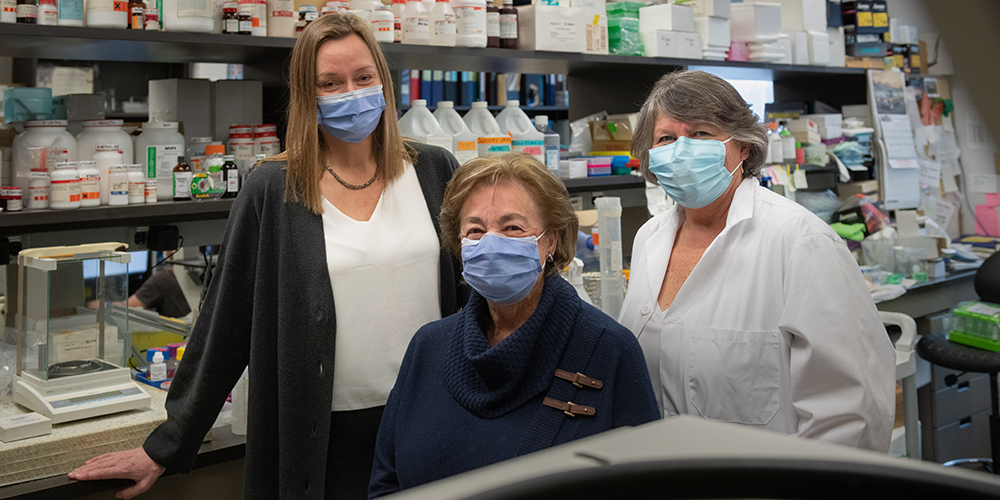
At a glance
Issue
The Alzheimer Society of Canada projects that approximately one million Canadians will be living with dementia in 2030. With this challenge ahead, researchers are motivated to search for effective treatments.
Research
The Canadian Consortium on Neurodegeneration in Aging (CCNA) has created the Engagement of People with Lived Experience of Dementia (EPLED) advisory group to bring together researchers with people with dementia and their caregivers for meaningful discussion on dementia research.
With funding from CIHR, CCNA researchers Dr. Jennifer Bethell and Dr. JoAnne McLaurin recently engaged members of EPLED through a series of virtual and in-person meetings in a discussion on the progress of biomedical research on dementia in Canada.
This engagement contributed to the development of a successful application to the federal New Frontiers in Research Fund’s Transformation program that will support research on an innovative approach to treating dementia and other neurodegenerative disorders.
Impact
This project has demonstrated the value of engaging people with lived experience in planning biomedical research projects and may serve as a model for the future.
According to the Alzheimer Society of Canada nearly 600,000 Canadians are living with dementia and this number is projected to increase to approximately one million by 2030.
Dementia doesn’t just affect those living with the disease. It can have a profound effect on the lives of spouses and other family members who are often the primary caregivers.
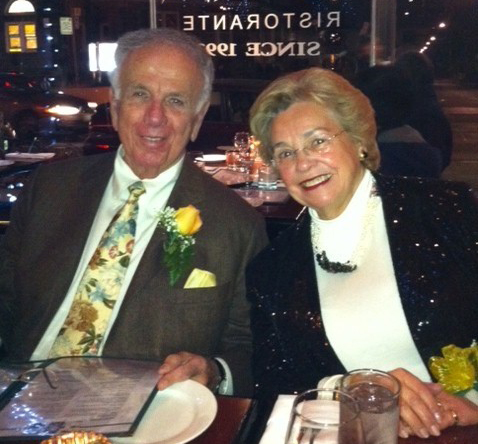
Linda Grossman knows what it’s like to live with someone with dementia. Her husband Dr. S. William Grossman, a dentist who had a practice in downtown Toronto, was diagnosed with mild cognitive impairment in 2006. Over the years his condition progressed to Alzheimer’s disease. Sadly, he passed away during the COVID-19 pandemic.
Linda is sharing her experience as a member of the Canadian Consortium on Neurodegeneration in Aging’s Engagement of People with Lived Experience of Dementia (EPLED) advisory group. This program enables researchers to meaningfully and actively engage people with lived experience of dementia, including persons with dementia and their care partners, in the CCNA research process.
Meaningful dialogue on biomedical research
With funding from CIHR, two CCNA researchers – Dr. Jennifer Bethell and Dr. JoAnne McLaurin – brought scientists together with members of EPLED through a series of virtual and in-person meetings to examine the progress of biomedical research on dementia in Canada.
The meetings proved to be a tremendous success with the scientists presenting the research in accessible terms and people with lived experience contributing valuable insights and asking perceptive questions.
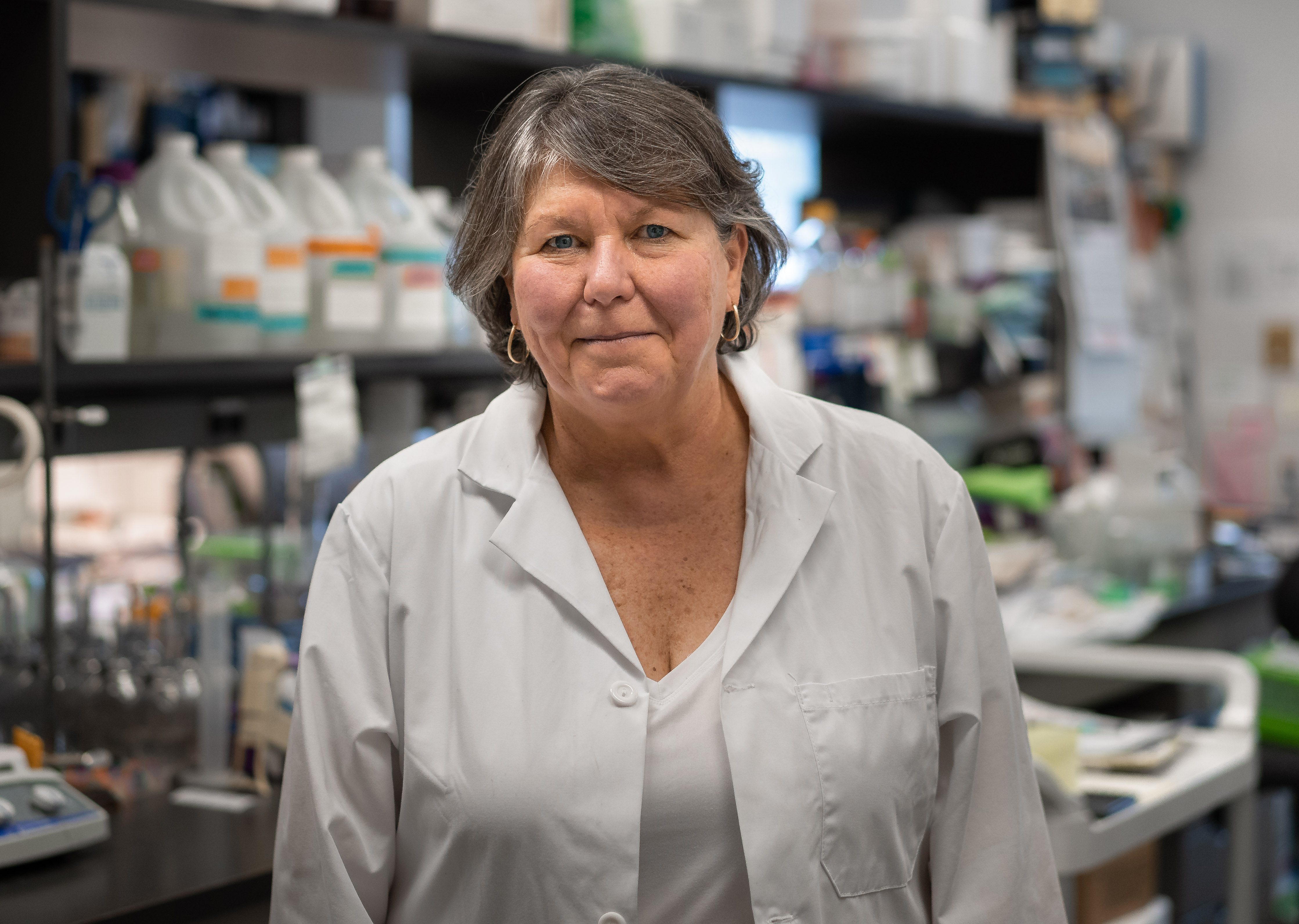
“Colleagues and trainees who were at the meetings all walked away in awe,” said Dr. McLaurin, a biomedical researcher who studies neurodegeneration as Director of the Biological Sciences Platform at Sunnybrook Research Institute. “As researchers, we're trained to start in a broad field and then get more specialized in a particular area. This can make it hard for us to communicate our findings in accessible terms. But this project is helping us make progress by having collaborative discussions with people who live with dementia and their caregivers.”
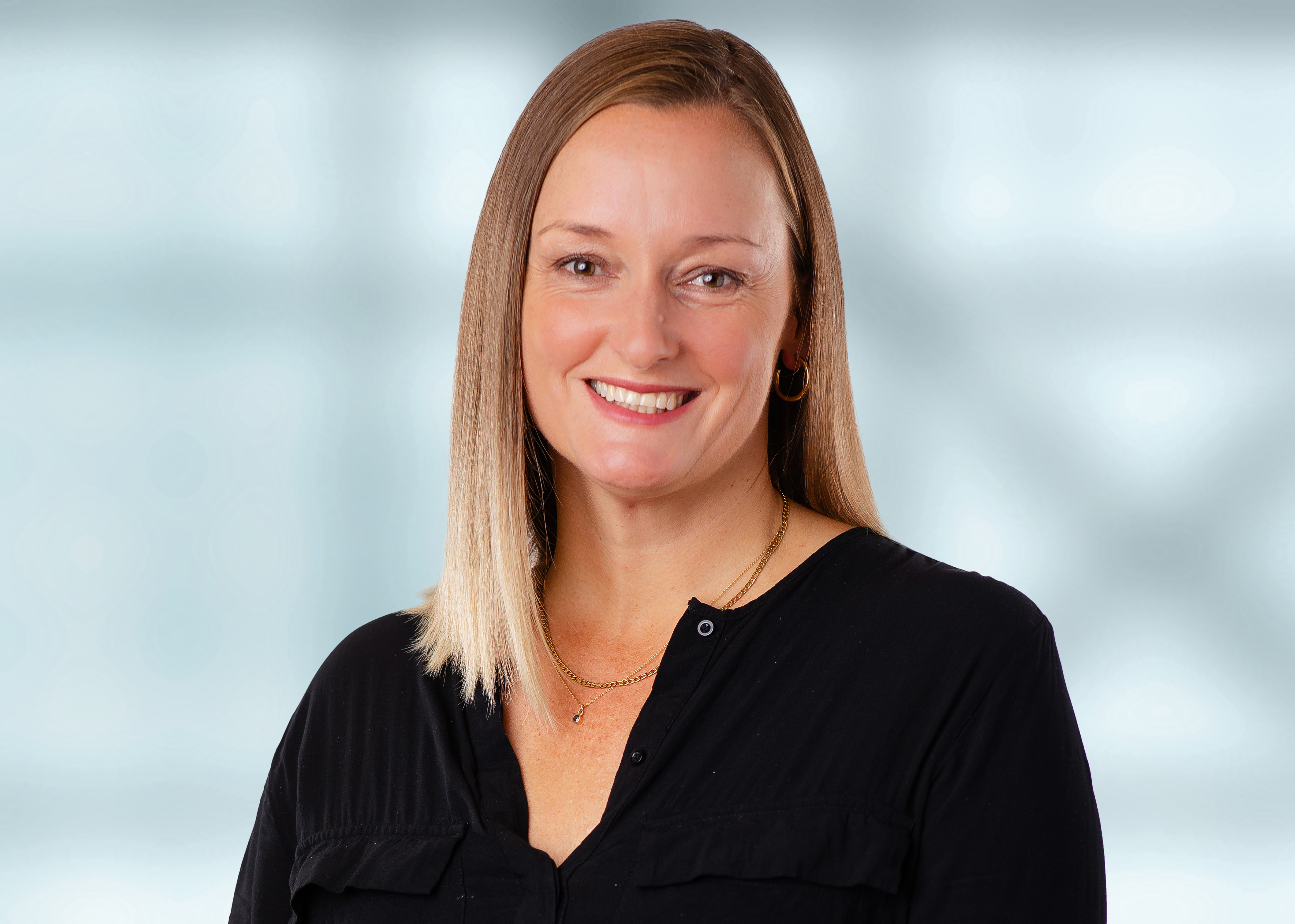
“When I first helped create the EPLED advisory group three years ago, it quickly became clear that the diversity of members and their shared experience would lead to progress,” said Dr. Bethell, an epidemiologist and health services researcher at the Toronto Rehabilitation Institute. “At the beginning of this project, I remember telling JoAnne that no one would be shy. I knew that participants would tell us what they thought and that they would ask questions. Together we’re all helping push science forward.”
Positive feedback from people with lived experience
Participants in the EPLED advisory group found the meetings to be rewarding. People living with dementia and caregivers got the chance to learn about the effects of new medications while explaining why it was important to them that researchers continue to search for treatments despite setbacks or the risk of failure.
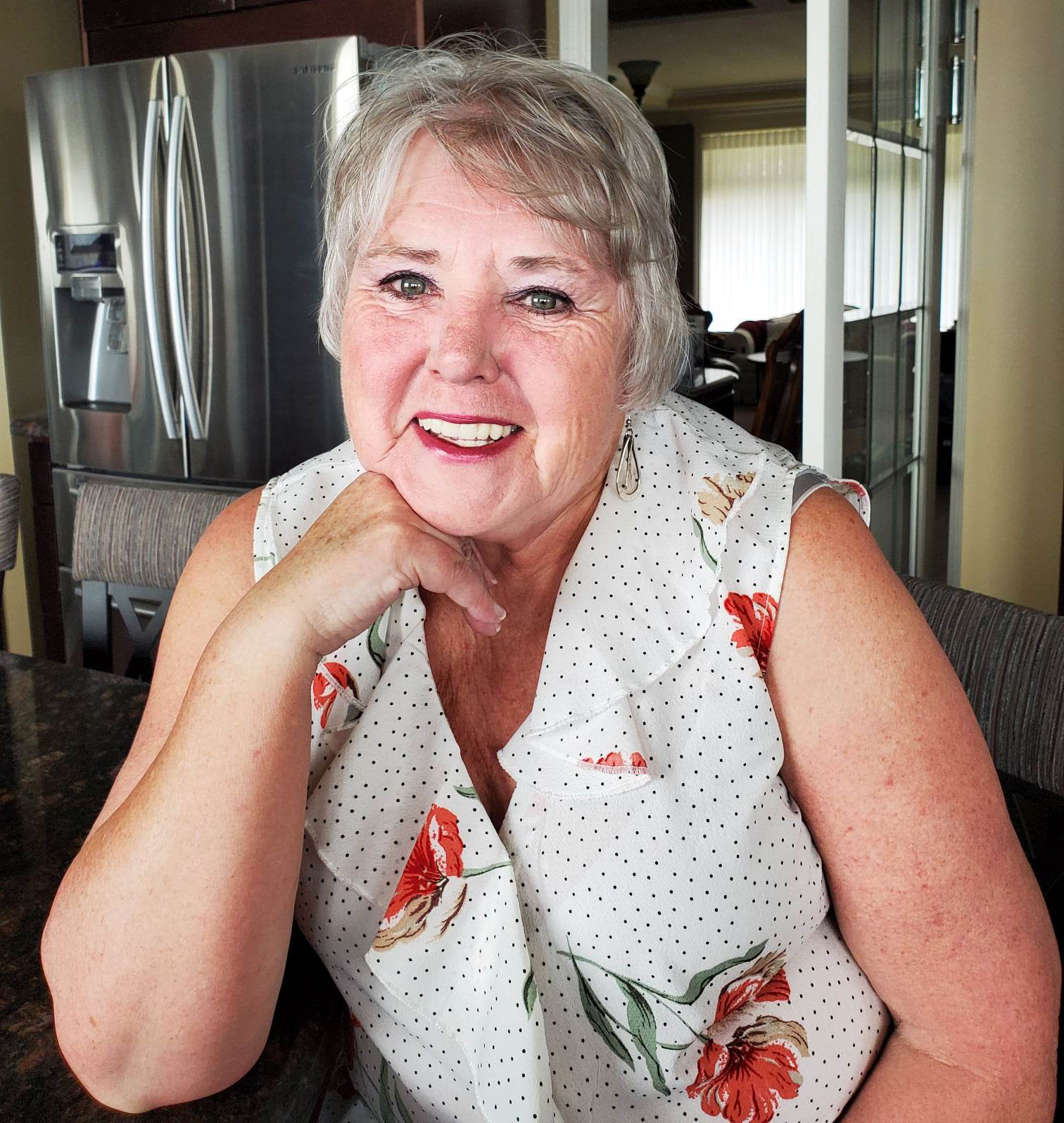
Christine Thelker once took care of people living with dementia in long-term care homes. However, when she was diagnosed with vascular dementia in 2015, she began to give presentations on what life is like with dementia. She has even spoken at the United Nations on behalf of people living with dementia.
Christine thought that the speakers at these virtual and in-person meetings were enlightening.
“It’s great to be able to ask questions so that we can find out about the good and bad effects of new medication,” said Christine, who lives in Vernon, B.C. “As a person living with dementia, the meeting helped me share information with researchers far more than before. I’m excited about my future thanks to them.”
Having more people who live with dementia and caregivers meet with scientists could lead to innovative biomedical research regarding the disease.
“Although I realize that research on all fronts is vital to our lives, I just want to emphasize that all biomedical researchers need to take steps to demonstrate how their work could be beneficial in accessible terms so that those who live with dementia and their caregivers can provide feedback,” said Linda, who’s an EPLED advisory group member and a representative of CIHR Institute of Aging’s Ontario Regional Council.
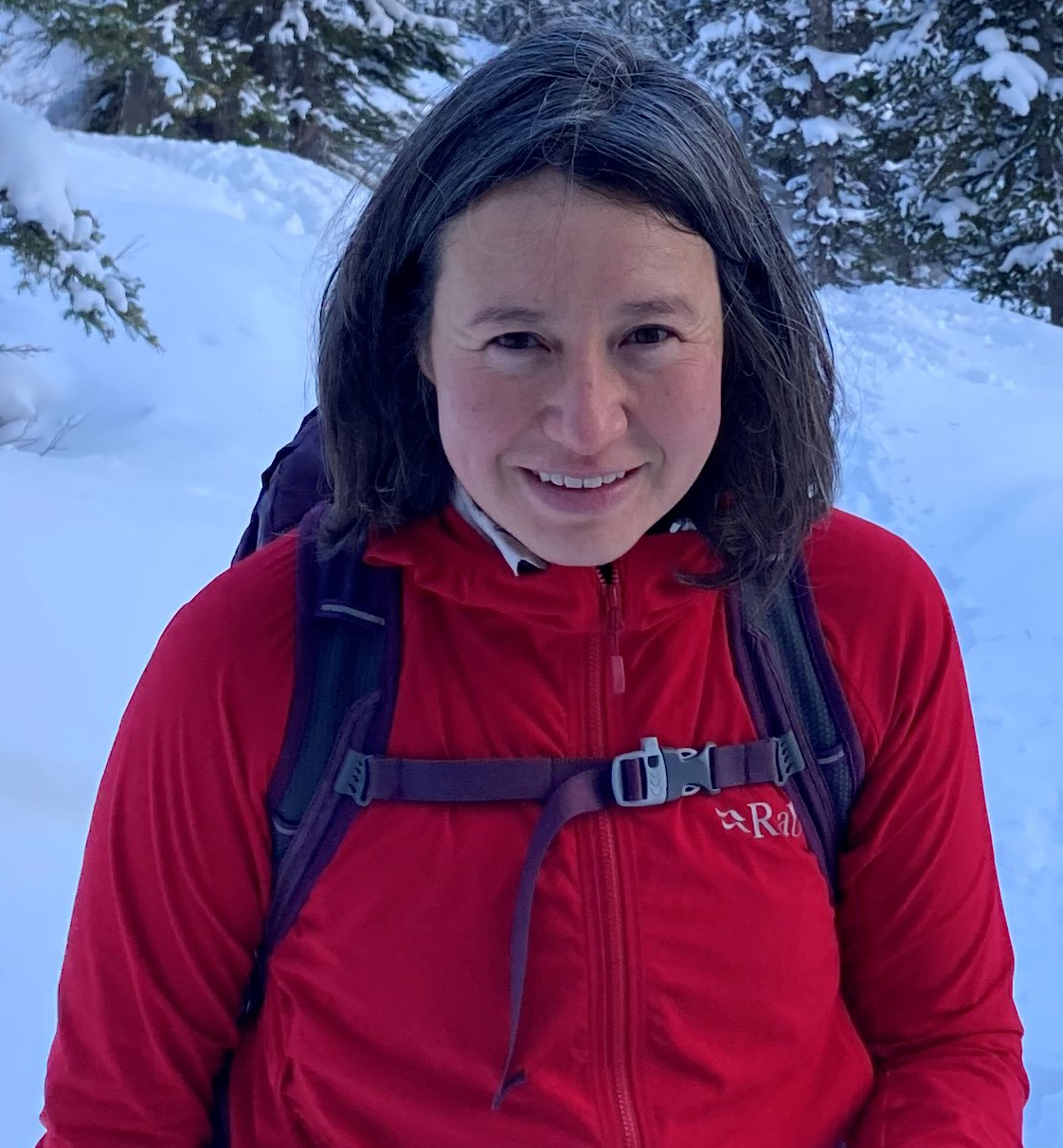
In 2019, Meghan Lau left her post as a foreign service officer for Global Affairs Canada in New York and moved to Calgary to take care of her mother who lives with posterior cortical atrophy, a rare form of a dementia that primarily affects visual processing.
As a caregiver on EPLED, Meghan took part in a face-to-face meeting organized by Dr. McLaurin and Dr. Bethell in Toronto last November.
"I found it fascinating to be asked how we would like them to address dementia,” said Meghan. “Because our experiences of facing this disease as either caregivers or people who are living with it are so varied, JoAnne and Jennifer did a great job of helping us discover things in common that haven’t always been addressed regarding quality of life.”
Future of dementia research
The feedback provided by the participants during this engagement helped inform an application that Dr. McLaurin, Dr. Bethell and their colleague at the Sunnybrook Research Institute Dr. Carol Schuurmans submitted to the federal New Frontiers in Research Fund's Transformation program. This funding program is designed to support large, interdisciplinary research projects that address a major challenge with the potential to realize real and lasting change.
In April, the government announced that their project was among the successful applications. The team will receive a grant of $24 million to investigate brain damage caused by dementia, strokes, Alzheimer's disease, and epilepsy. They hope to develop new gene delivery therapies that can possibly repair the neurons.
CCNA is a major initiative funded by CIHR and partners. It is a key component of CIHR's new Brain Health and Cognitive Impairment in Aging research initiative led by CIHR's Institute of Aging.
The Institute's Scientific Director Dr. Jane Rylett appreciates the value and importance of engaging people with lived experience in research.
"Engaging people with lived experience in research of all kinds, including biomedical and preclinical research, is a critical part of the research process. It offers an opportunity to bring a new approach, where the patient partner can ask questions from a different perspective and say to the researcher: What about this?" said Dr. Rylett. "This important relationship in biomedical research has been neglected in the past, but JoAnne and Jennifer and other researchers are now demonstrating how it is a critical part of developing biomedical research projects for the future."
- Date modified: